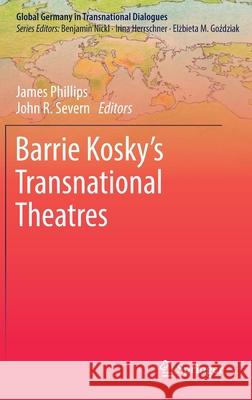Barrie Kosky's Transnational Theatres » książka
topmenu
Barrie Kosky's Transnational Theatres
ISBN-13: 9783030750275 / Angielski / Twarda / 2021 / 211 str.
Kategorie:
Kategorie BISAC:
Wydawca:
Springer
Seria wydawnicza:
Język:
Angielski
ISBN-13:
9783030750275
Rok wydania:
2021
Wydanie:
2021
Numer serii:
000822444
Ilość stron:
211
Waga:
0.50 kg
Wymiary:
23.39 x 15.6 x 1.42
Oprawa:
Twarda
Wolumenów:
01
Dodatkowe informacje:
Wydanie ilustrowane











